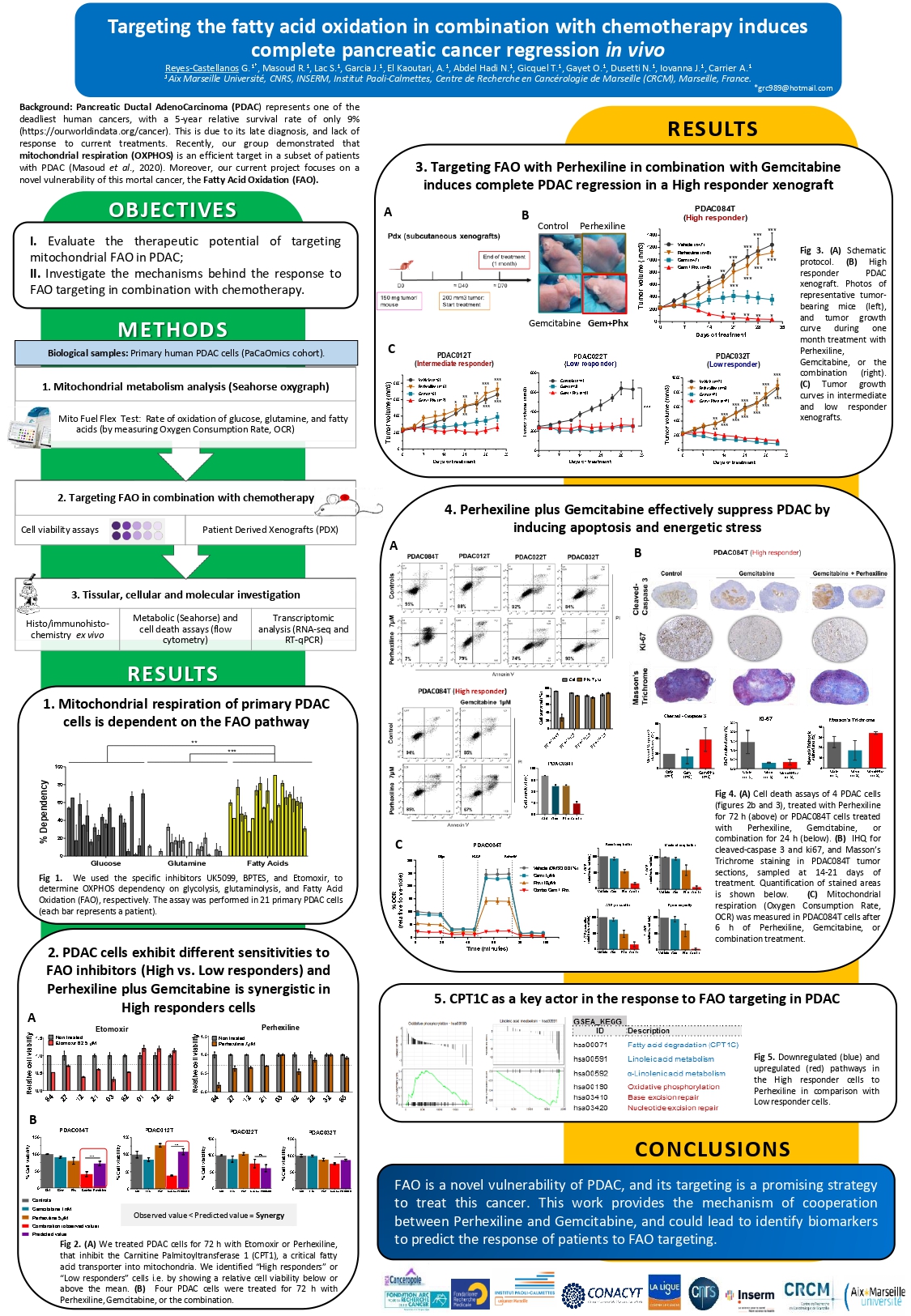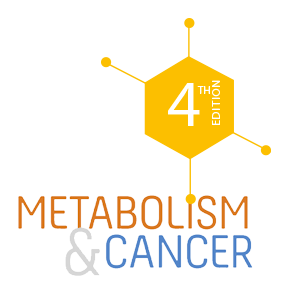
Targeting the fatty acid oxidation in combination with chemotherapy induces complete pancreatic cancer regression in vivo
Targeting the fatty acid oxidation in combination with chemotherapy induces complete pancreatic cancer regression in vivo https://www.metabolism-cancer.com/wp-content/uploads/2021/05/Reyes-Castellanos-Gabriela-FINAL-VERSION-07.05.21-1_page-0001.jpg 1125 1625 Metabolism & Cancer //www.metabolism-cancer.com/wp-content/uploads/2024/10/METABO_2025_696x696px.png



Hi Gabriela, thanks for your poster. I’d like to know if you have evaluated ROS levels in your system. Another question regards the experiment in Fig. 1, did you count live cells after treatment with inhibitors? Thank you